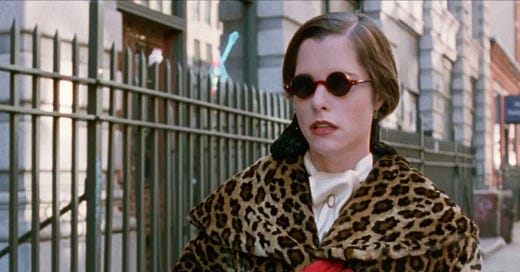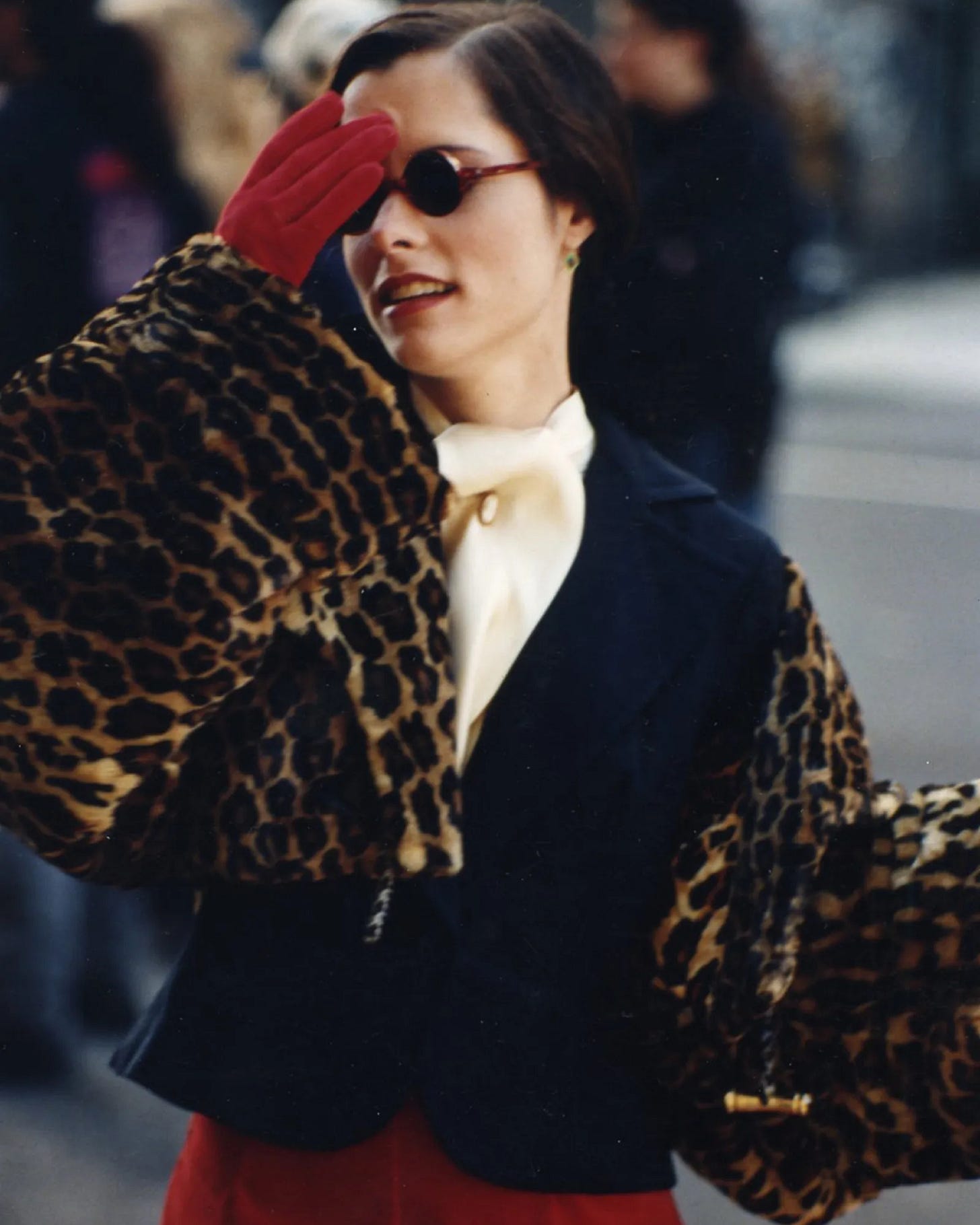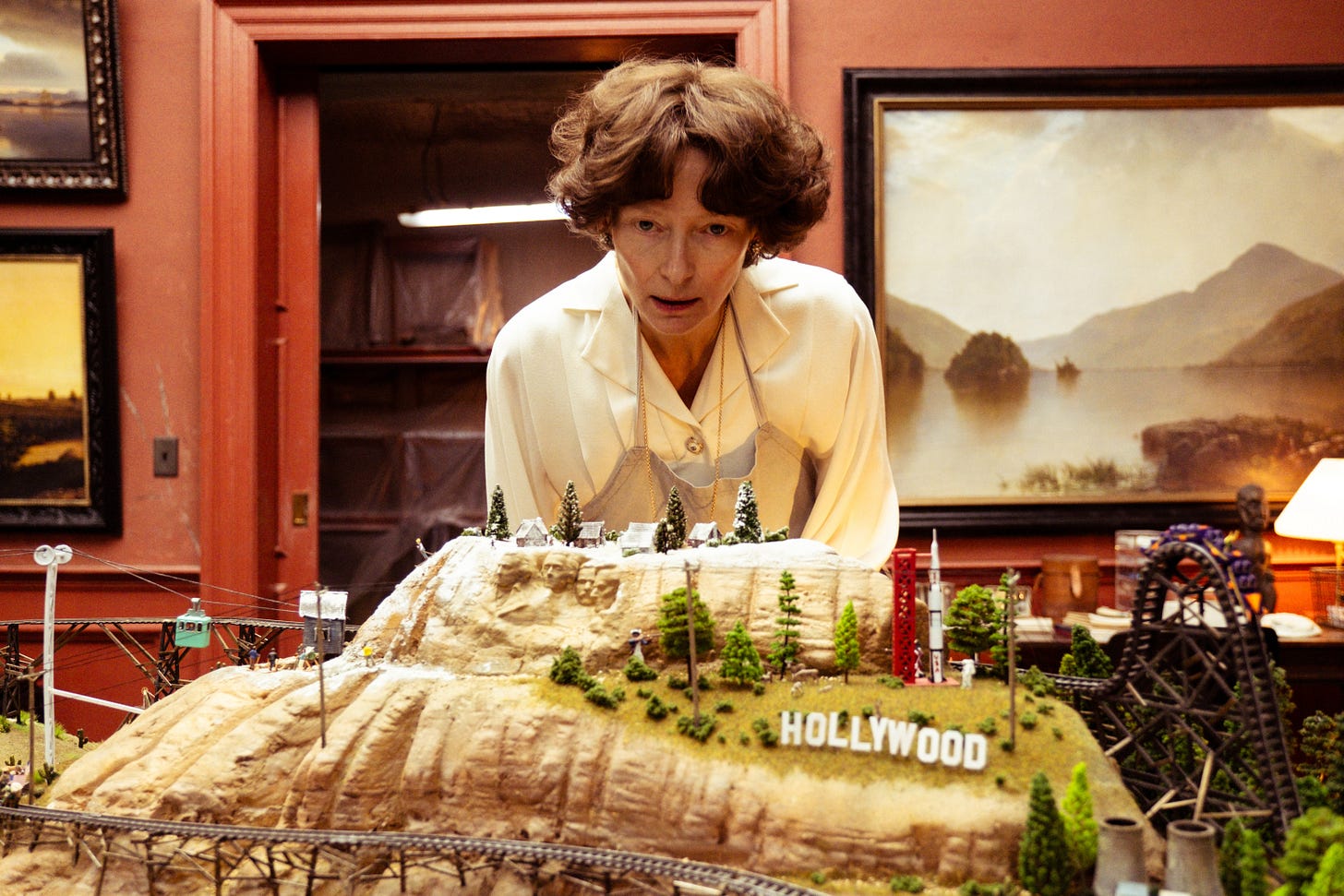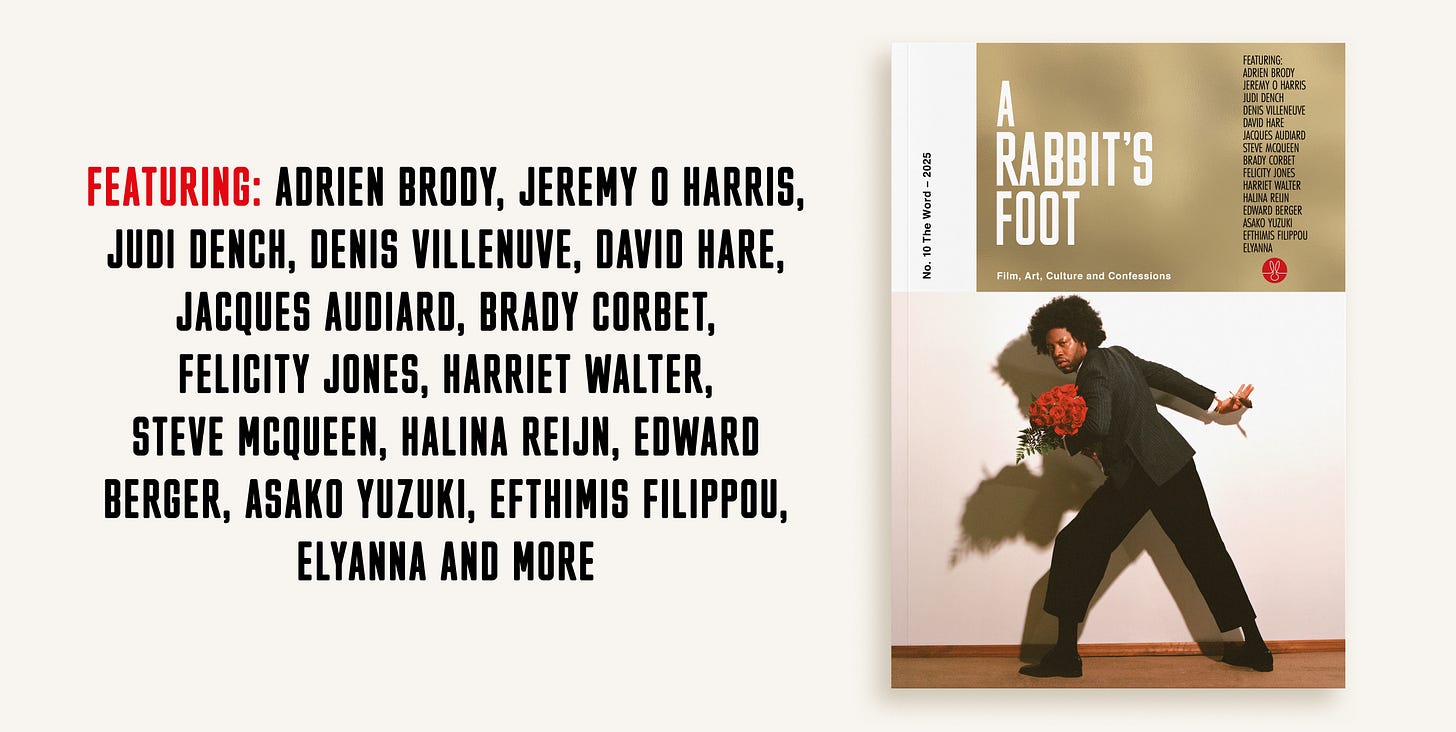Parker Posey as Party Girl, 30 years on
Also: 'Opus' director Mark Anthony Green and Joshua Oppenheimer's musical for the end of the world
So decadent, so silly: Parker Posey as Party Girl, 30 years on
Parker Posey is currently winning over our hearts as a scene-stealing, benzo-addled trophy wife in The White Lotus, but it was the 90s film Party Girl which first cemented the actor's reputation as Generation X's Girl Next Door. “Parker Posey is the Queen of Indies, always seemingly playing herself, with a dead-eyed charm, a sophisticated and chaotic kinetic energy, ready with a monotone put-down. In Party Girl, Daisy Von Scherler Mayer’s 1995 downtown fairytale, she’s Mary, Maid Marion of the club kids, a maximalist and messy free spirit in the Hot Trainwreck Hall of Fame (alongside Eve Babitz, Cat Marnell, Fleabag and Edie Sedgwick)," writes Katie Driscoll, in an essay reappraising Posey's role and making the case, in 2025, for a Party Girl Spring.
Watch: All the videos from our Power of Film 2025 event on our YouTube channel
Mark Anthony Green on Japanese horror, Maggot Brain and Black Alt Music Auteurism
There’s an image seared into the mind of Mark Anthony Green, the writer-director behind new A24 thriller Opus, that blurs the lines between that which is harmless and that which is terrifying. “There’s this Beatles fan.” The Kansas-City native tells Luke Georgiades describing the seed that would become his debut feature. “She’s at a Beatles concert, and she’s screaming. Losing her shit. I can see her face. And if you take the crowd out of it, it looks like she’s in danger. You put the crowd behind her, and she looks like she’s having the time of her life. Same image, same person, same exact expression.”
During an intimate shoot with A Rabbit’s Foot creative director Fatima Khan at the Chateau Marmont in Los Angeles, we sat down with Green to discuss Maggot Brain, Black alt music auteurism and making horror the Japanese way.
Joshua Oppenheimer on making a musical for the end of the world
Joshua Oppenheimer had been prepared to make his third film in Indonesia, but the filmmaker was banned from the country following the release of his films The Act of Killing and The Look of Silence. He’d been curious about the region’s oligarchs and their bunkers, luxuriously crafted to help them survive a societal collapse they, at least in part, helped create. It was a visit to a bunker with an oil tycoon and his family that had Oppenheimer thinking—how would they cope with the guilt from the catastrophe from which they’d be fleeing? How would they cope with the remorse for not bringing all their loved ones with them?
The result is The End, the filmmaker’s first narrative work starring George MacKay, Michael Shannon and Tilda Swinton, which sees an oil baron and his family live out the End Times from the vantage point of their bunker—equipped with a swimming pool, a library and enough food for fish suppers with soured wine. Perhaps surprisingly it's also a musical, a strategic hyperrealism that enables viewers to process the overflow of surreality. Joshua Oppenheimer speaks to Nadia Maria Oliva about why he decided not to other the "one-percent", the fickle nature of time and how we use fantasy to make life bearable.







